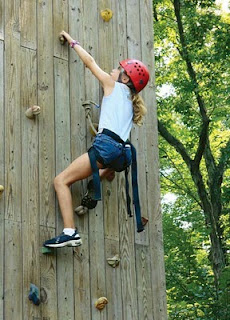Between the ages of 9-12, children use imagination and move from concrete representation to abstract thinking as they seek to bring order to the various disconnected facts and ideas they encounter in the world. They are able to think hypothetically. Montessori believed it is also a time of great moral development. No longer merely concerned with right and wrong, good and bad, the Montessori upper elementary student now seeks to understand the motivation behind behavior. When confronted with moral issues, the upper elementary student seeks to imagine and develop possible solutions.
Montessori Planes of Development: Upper Elementary Characteristics in the Second Plane
Characteristics of Fourth GradersThe average fourth grader has abundant energy. They enjoy rough and tumble play and are becoming interested in team play. They are easily motivated and enjoy trying new things. While they are growing and maturing at different rates, fourth graders need a careful balance of adult guidance and independence. Fourth graders…
- are energetic
- are daring
- are interested in clubs, teams, fan clubs
- ask “Why?”
- are untidy
- like to work and be with members of their own sex
- daydream
- have a strong sense of humor
- giggle and make noise
- have a strong sense of justice and injustice
- want pets
- have collections of “things”
- have rapidly changing interests
Fifth graders are happy and generally friendly. They are truthful and have a positive approach to life. Self-confidence begins to build again and they are building more acceptance of others. This is the beginning of “cliques” as they are learning where they belong. Feelings are hurt as earlier friendships dissolve and they begin to exclude others who aren’t like them. Fifth Graders…
- tend to be obedient
- have a wide variety of interests
- readily identify with TV characters
- are developing increasing independence
- form good personal relationships with teachers and adult role models
- tend to have messier handwriting than they did in 4th grade
- are quick to anger, but forgive just as quickly
- are good problem solvers
- are good listeners
- are talkative and like to explain things
- are voracious readers
- have increased ability to think abstractly
- like rules and logic
- are moody and sensitive
- argue; talk before thinking
- are proud of their academic achievements
The average sixth grader is heading toward adolescence and needs the skills to handle transitions. They are developing interpersonal skills as well as the means to handle peer pressure. They have a wide range of emotions and can be moody and easily frustrated. Girls experience growth spurts with most reaching puberty. Boys soon follow. Sixth graders…
- have high energy and can be “wiggly” if they sit for extended periods of time
- are developing their adult personalities
- are self-aware and insightful
- can initiate their own activity
- find peers more important than teachers
- are more tolerant than they were in 5th grade
- can set realistic, short-term goals
- can see both sides of an argument; like to debate
- enjoys higher intellectual humor including word play and double meanings
- tends toward sarcasm and put-downs – can be cruel
- have advanced research and study skills abilities
- may show an aptitude toward a particular skill or subject area
- are interested pop culture, materialism, current events, social justice
- a secure and understanding environment
- a well-organized day
- recognition for efforts and accomplishments
- a sense of belonging
- outdoor play time and help in developing physical skills such as batting, throwing, kicking, and catching balls, etc.
- opportunities to excel
- choice in activities and decisions
- encouragement to try new activities
- encouragement to finish what they start
- opportunities for community service
- opportunities to form same-sex friendships
- opportunities for quiet activities
- plenty of healthy food and adequate rest (The average upper elementary student needs between 9.5 and 10 hours of sleep per night!)

Related NAMC blogs:
- Montessori Planes of Development: Lower Elementary Characteristics in the Second Plane
- Similarities Between Toddlers and Adolescents: A Montessori Look at Growing Up
- The First Plane of Development: Birth to Age 6 - Montessori Philosophy
- The Second Plane of Development: Ages 6-12 - Montessori Philosophy
- The Third Plane of Development: Ages 12-18 - Montessori Philosophy
- The Fourth Plane of Development: Ages 18-24 - Montessori Philosophy
As much as possible, NAMC’s web blog reflects the Montessori curriculum as provided in its teacher training programs. We realize and respect that Montessori schools are unique and may vary their schedules and offerings in accordance with the needs of their individual communities. We hope that our readers will find our articles useful and inspiring as a contribution to the global Montessori community.
© North American Montessori Center - originally posted in its entirety at Montessori Teacher Training on Wednesday, January 6, 2010.
© North American Montessori Center - originally posted in its entirety at Montessori Teacher Training on Wednesday, January 6, 2010.


0 comments:
Post a Comment
Have questions or comments? Let us know what you thought about this article!
We appreciate feedback and love to discuss with our readers further.